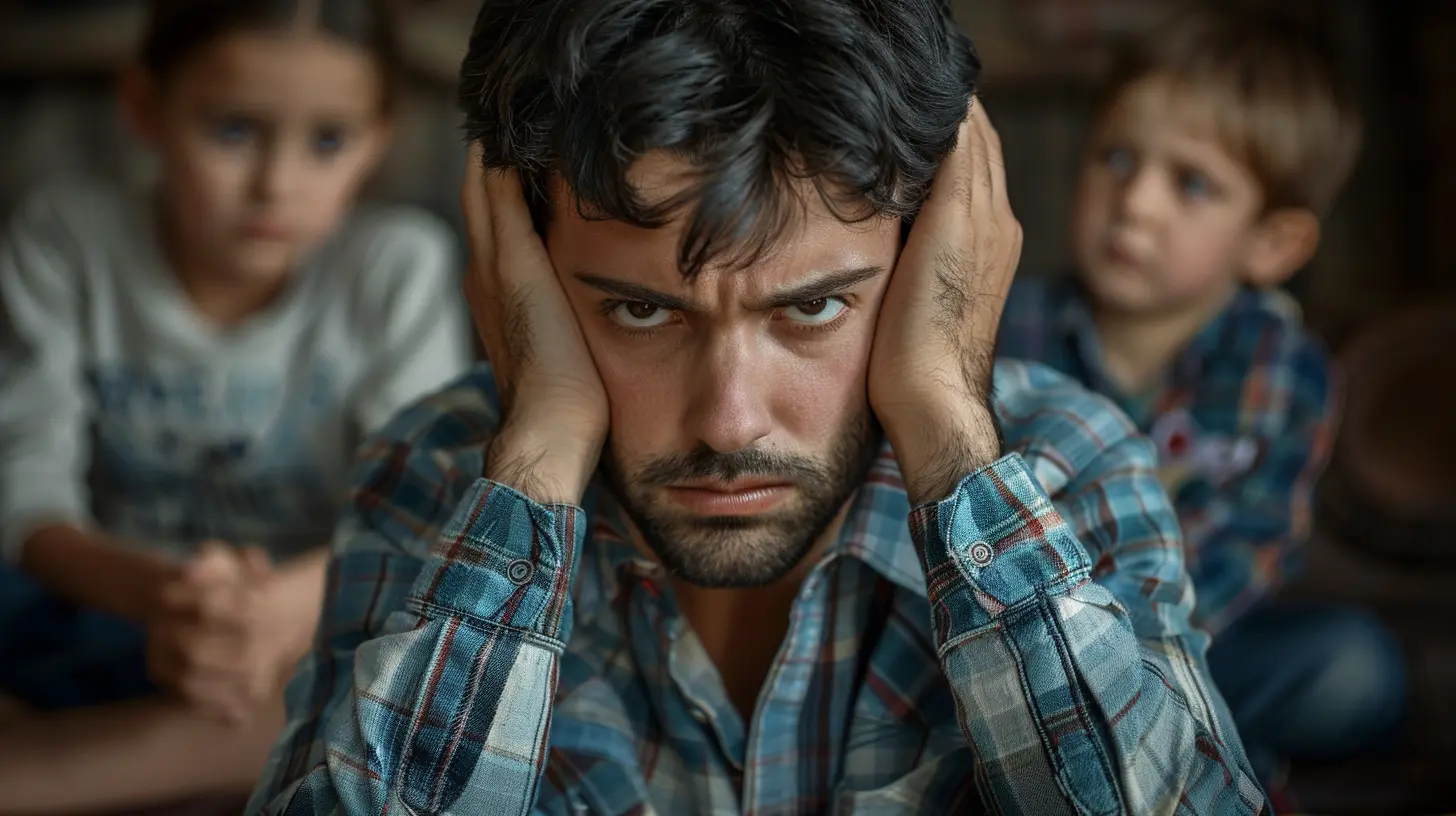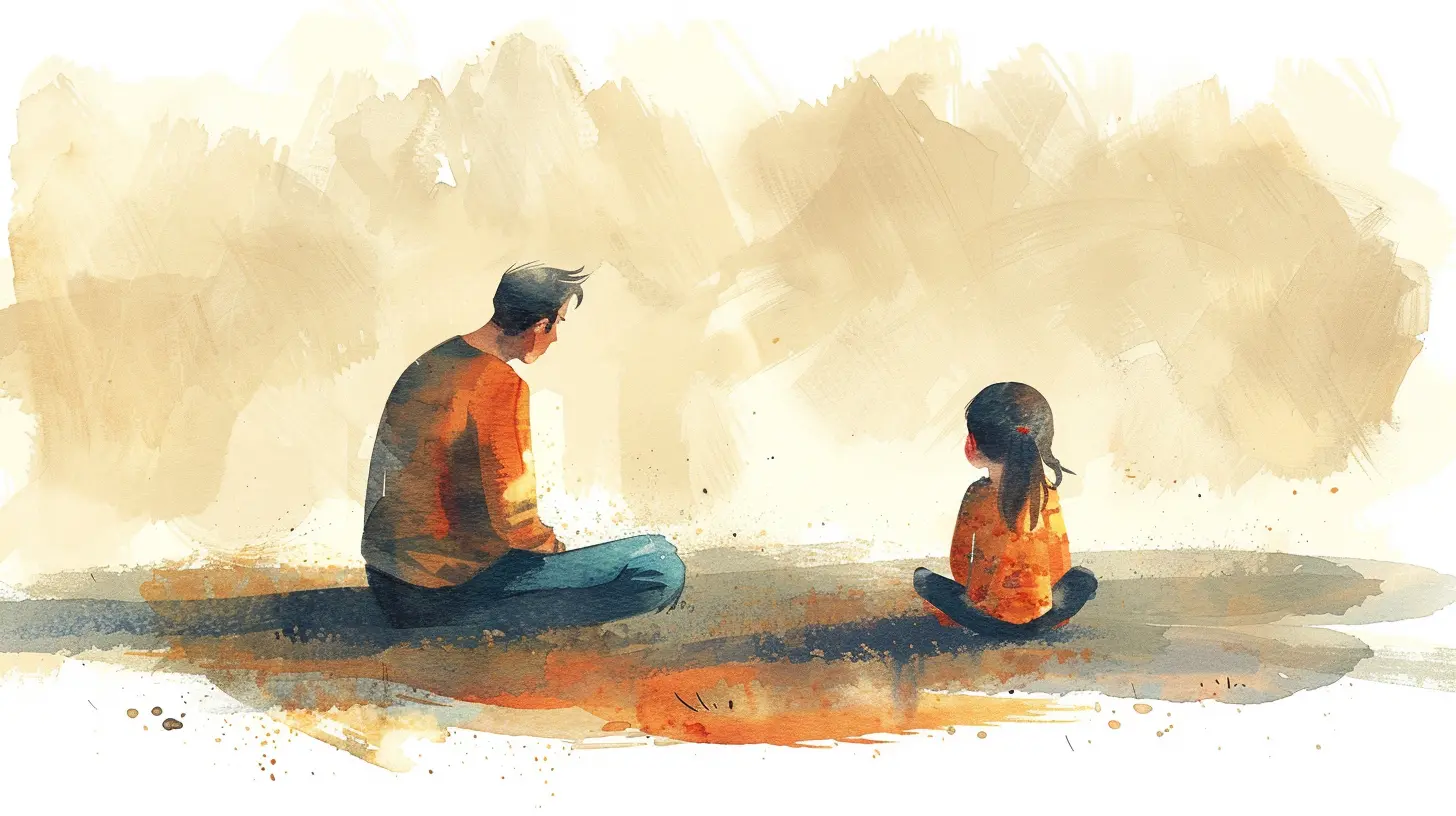Dealing with Parental Guilt: Why You Don’t Have to Be Perfect
18 July 2025
Let’s be honest—parenting is no easy ride. It’s messy, chaotic, and downright confusing sometimes. You want to do it all and be everything your child needs, but somewhere between the piles of laundry, missed school pick-ups, and forgotten permission slips, that little voice creeps in: “Am I doing enough?”
Yep, that’s parental guilt talking. And guess what? You’re not alone. Every parent—yes, every single one—has wrestled with the guilt monster at some point. But here’s the truth no one talks about enough: you don’t need to be perfect to be a good parent.
In this post, we’re going to dig deep into parental guilt—where it comes from, why it's so common, and how to shut it down before it takes over your mental space. So, grab a cup of coffee (or whatever keeps you going), and let’s talk it out like the real humans we are.
What Is Parental Guilt, Really?
Parental guilt is that heavy, nagging feeling you get when you think you’re falling short as a parent. It’s that voice in your head that says:- “I should’ve packed a healthier lunch.”
- “I yelled too much today.”
- “I missed the school play again.”
- “I shouldn’t have given them screen time.”
Sound familiar?
It’s basically the emotional equivalent of carrying a backpack full of bricks made out of “shoulds” and “could-haves.” And while it often stems from love and good intentions, if left unchecked, it can turn into anxiety, burnout, or even resentment.
Where Does Parental Guilt Come From?
Ah, the million-dollar question. There isn’t just one source of parental guilt—there are many. Let’s break a few of them down:1. Unrealistic Expectations
We live in a highlight-reel world where social media shows us perfect bento lunchboxes, ideal family vacations, and smiling kids in matching outfits. But guess what they don’t show? Meltdowns at Target, cereal for dinner, and the hundredth "no" before 9 AM. The pressure to be a Pinterest-worthy parent is real, but it’s also unrealistic.2. Comparing Yourself to Others
It's natural to look at other parents and think, “Wow, they’ve got it all together.” But remember, comparison is the thief of joy. You’re seeing someone’s best moment—maybe even a filtered one—while judging it against your worst. That’s not a fair fight.3. Cultural and Societal Pressures
Every culture and society has its own definition of what a “good parent” looks like. Whether it's staying home, working full-time, breastfeeding, co-sleeping, or any other hot topic—there’s always a standard we’re “supposed” to meet. And if we don’t? Cue the guilt.4. Past Experiences or Upbringing
Sometimes we parent based on what we experienced—or wished we’d experienced—as kids. If you grew up feeling neglected or overly pressured, you may feel extra responsible for doing things “right.” That pressure can morph into guilt whenever you fall short of those ideals.
Why Seeking Perfection Backfires
Here’s the cold, hard truth: trying to be a perfect parent is a one-way ticket to disappointment.🧠 Perfection Isn’t Real
Perfection is a myth. It doesn’t exist in parenting or anywhere else in life. Kids don’t need perfect parents. They need present, loving, and human parents. Ones who mess up, apologize, and keep showing up.🌪 It Leads to Burnout
Trying to be everything, do everything, and fix everything? That’ll burn you out faster than a toddler in a sugar rush. And when you’re running on empty, everyone feels it—especially your kids.😞 It Robs You of Joy
You can’t enjoy the messy, beautiful parts of parenting if you’re constantly obsessing over every mistake. Nobody wants to spend their child’s entire childhood worrying they’re doing it wrong.
Shifting the Mindset: Progress Over Perfection
So how do you let go of the guilt and start embracing real, imperfect parenting? Start with this mindset shift: it’s about progress, not perfection.✅ Aim for “Good Enough”
“Good enough” parenting isn’t lazy—it’s healthy. It means showing up, doing your best with what you have, and being okay with the occasional fast-food dinner or lost sock. Your kids don’t need a flawless parent. They need you, flaws and all.💬 Open Communication
Talk to your kids. Let them know when you're having a tough day. Apologize when you make a mistake. Show them what it looks like to be human. These reflections build trust, empathy, and life skills stronger than anything else.💡 Focus on What Matters
Ask yourself: “Will this matter in five years?” Most things won’t. Obsessing over minor slip-ups takes your energy away from what really counts—connection, love, and being a solid presence in their lives.Strategies to Deal with Parental Guilt
Now that we’ve unpacked the “why,” let’s talk about the “how.” Here are some practical ways to deal with parental guilt when it starts sneaking in:🧘♀️ Practice Self-Compassion
Talk to yourself like you’d talk to a friend. Would you shame your BFF for giving their kid PB&J for the third day in a row? Nope. So why do it to yourself?🗒 Keep a “Wins” List
Every day, jot down 1–3 things you did well as a parent. Maybe you gave a good hug. Packed a snack. Read a bedtime story while half-asleep. These small wins add up.🕰 Carve Out “You” Time
You can't pour from an empty cup. Take a break. Get outside. Read a page of a book (even if it takes you a week). When you’re recharged, you’ve got more to give.👥 Connect With Other Parents
There’s nothing quite as healing as hearing another parent say, “Yep, I’ve been there too.” Join a parenting group, chat with friends, or scroll through some honest mom-dad blogs instead of the super-filtered ones. Real stories remind you you’re not alone.📵 Ditch the Comparison Game
If scrolling through social media makes you feel like trash, it’s time to take a break. Curate your feed with accounts that keep it real and inspire rather than intimidate.Teach Through Imperfection
Here’s a twist—a pretty awesome one, actually: your imperfections can be your biggest parenting strength.When your kids see you mess up and bounce back, they learn resilience. When you lose your cool and apologize, they learn accountability. When you ask for help, they learn teamwork.
Perfect parenting doesn’t allow space for those life lessons. Imperfect parenting? That’s where the magic happens.
Kids Are More Resilient Than You Think
Ever notice how kids bounce back from setbacks like rubber balls? They don’t need the most expensive toys, the perfect home, or gourmet meals. They need love, consistency, and safety.So, if you’re worried that one bad day has ruined your child for life—take a deep breath. Kids are incredibly forgiving. What they’ll remember in the long run is how much you loved them, not that time you forgot pajama day.
Let’s Normalize Saying “I’m Trying My Best”
Wouldn’t it be amazing if parents could just openly say, “I’m doing the best I can, and that’s enough”? It’s time we normalize that.Let’s start celebrating the honest effort, not the illusion of having it all together. Because parenting isn’t a performance—it’s a relationship. One that grows through trial, error, and a whole lot of love.
Final Thoughts
Parental guilt might never disappear completely—and maybe that’s not a bad thing. It shows you care. But don’t let it control your parenting journey. You’re doing a bigger and better job than you think, even on the days when it feels like you’re barely keeping it together.So, the next time guilt creeps in, remember this: You don’t have to be perfect. You just have to keep showing up. That’s enough. And you? You’re more than enough.
all images in this post were generated using AI tools
Category:
Parenting SupportAuthor:

Tara Henson
Discussion
rate this article
1 comments
Damien Frank
Embrace imperfection, thrive together!
July 30, 2025 at 3:49 AM

Tara Henson
Thank you! Embracing our imperfections is key to growth and connection. Let's support each other on this journey!


